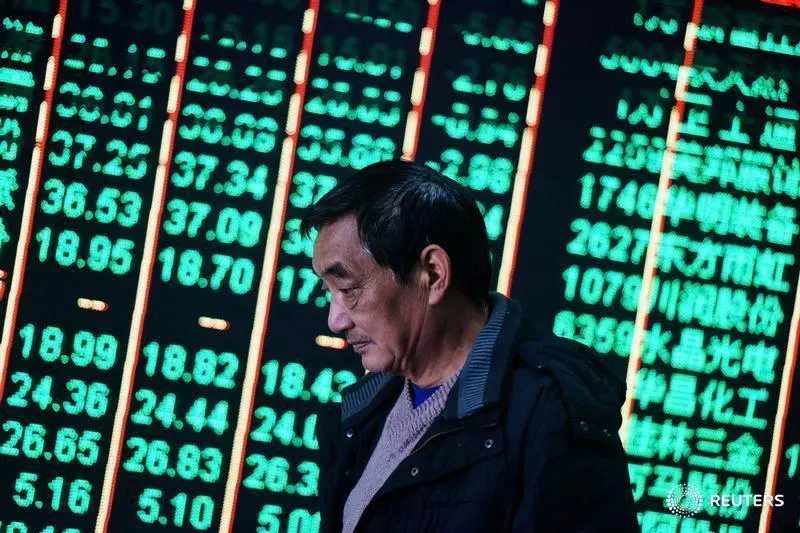PHOTO
Falling bond yields and the prospect of lower interest rates may have helped fuel investors' animal spirits and the recent mega rally in world stocks, but it's a different story when borrowing costs are falling because recession fears are rising. That's the market landscape investors in Asia wake up to on Friday after disappointing U.S. factory data on Thursday slammed U.S. Treasury yields, Wall Street, and stocks, prompting traders to start betting on a possible 50 basis point rate cut from the Fed next month rather than 25 bps. Figures showing a much larger-than-expected contraction in U.S. manufacturing activity last month followed purchasing managers index data earlier on Thursday that painted a similar picture in Germany, Japan and China.
China's 'unofficial' Caixin manufacturing PMI was particularly galling at 49.8, signaling a contraction, compared with a consensus forecast of 51.5 and fairly steady growth. With China's economy already in the doldrums, renewed weakness in Europe and the U.S. is bad news for global growth. Central bank rate cuts, the latest of which came from the Bank of England on Thursday, may have to be deeper and faster than analysts and policymakers had bargained for.
The 10-year U.S. Treasury yield tumbled 13 basis points, its biggest one-day fall this year, and is now below 4.0%. Never mind the great rotation out of Mega Tech into small caps, investors seem to be rotating out of stocks and into the safety of U.S. Treasuries.
Apple, Amazon and Intel reported earnings after the U.S. close on Thursday and the early signs are investors were not impressed. Intel's outlook, in particular, was bleak, and shares fell 15% in after-hours trading. Investors in Asia will be hoping for a calmer end to a momentous week, the highlight of which was a rate hike in Japan.
As Washington-based economist Phil Suttle puts it: "Judged by the actions of other central banks, these were hardly major moves. Judged by Japanese policy over the past 25 years, these were major moves." So far this year the Bank of Japan has raised rates twice, ended yield curve control and started QT, Suttle noted.
Asia's economic calendar on Friday is light, with only South Korean inflation likely to be a market-mover. A Reuters poll suggests the annual rate ticked up to 2.50% in July from a one-year low of 2.40% in June.
Swaps market pricing points to 35 basis points of easing from the Bank of Korea this year. Barclays economists on Thursday forecast quarter-point rate cuts in October and November.
Asia's corporate calendar on Friday is busier, with earnings reports due from Japan including Nintendo and Sumitomo Mitsui Financial Group.
Here are key developments that could provide more direction to markets on Friday:
- South Korea inflation (July)
- Australia producer price inflation (Q2)
- U.S. non-farm payrolls (July)
(Reporting by Jamie McGeever; Editing by Bill Berkrot)




















